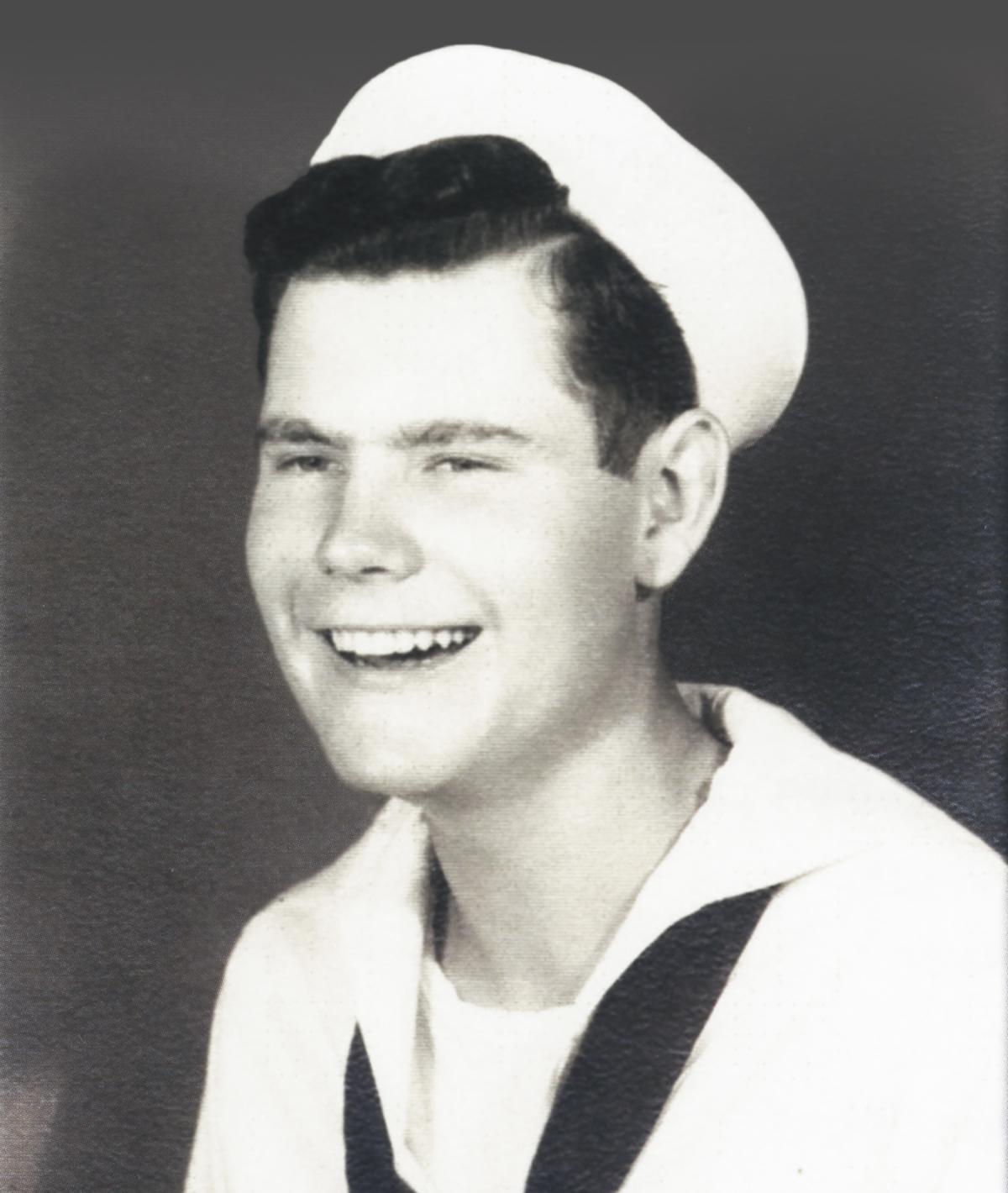Admiral Meyer was widely known as the “Father of Aegis,” the combat system that entered the fleet in 1983 and is still effective 36 years later. During World War II, he began training in the V-12 reserve officer program at the University of Kansas. He became an ensign in February 1946 at age 19. This edited excerpt is from Meyer’s Naval Institute oral history interview with Paul Stillwell on 12 November 2007
The commissioning day was so big that it overwhelmed me. It took me a long time to really appreciate the significance of it. Afterward about 60 or 70 people went to celebrate at a place called The Tee Pee, which was a joint. That night we drank a case of Three Feathers whiskey. Of course, we were all underage.
Well, what were we going to do next? Nobody knew what to do with us. Several days later an AlNav [All Navy] message came in. It was soliciting applications to attend graduate training for five terms in the new science of electronics at the Massachusetts Institute of Technology [MIT]. We didn’t know what to do, so we talked to a lieutenant who said:
Look, officers, the Navy doesn’t do stupid things. The Navy knows you’ve been going to school the last 24 months, and they’re not about to order you back to school right now. This program will come around again; take my word for it. It’s going to be needed in the Navy, and it will be back around. So, what you should do is apply. By application you show interest, and you’ll be on the record, so when it comes around again, you’ll go to the head of the line.
So, we applied.
Another week or so passed. My orders were to board a personnel transport at San Francisco for further transfer in the Pacific. So, I got out there—the first time in my life I’d been on an airplane. I was billeted at an officers’ barracks. They didn’t know where my ship was, but I was to report in each day ’til they found it. This went on for several days, and now we were into March.
Finally, one morning I was mustered and ordered to report to the Army Air Forces base at Oakland, for further transport to the Pacific. I had to be out there, like, at 11:00 in the morning. I spent the whole damned afternoon sitting around. About 25 or 30 of us were waiting to be loaded onto this plane—first stop: Hawaii
A WAVE [Women Accepted for Volunteer Emergency Service] came running out. She was paging Ensign Meyer. She said: “Ensign, you have a change of orders here. I’m looking at these; they’re message orders. You’re to report to a place called ‘mitt’ in Massachusetts. You’re supposed to be there by the 20th of February.”
I said, “What? It’s now the 15th of March.”
“Well,” she said, “I’m just telling you what it says.”
So, I got on an airplane to Kansas City—not far from my hometown in Missouri. I called my girl and told her: “I’m just passing through. I’m going to catch a plane, and I’m going to Boston, Massachusetts—wherever the hell that is.”
“Okay,” she said, “goodbye.”
On the 17th of March—Saint Patrick’s Day—I landed about four o’clock in the afternoon in Boston. I caught a taxi to a place called the Graduate House in Cambridge. I went in there and saw a rather short black man by the name of Andy behind the counter. I was in uniform, and he looked at me. He didn’t even ask who I was. He said, “Ensign Meyer, we’ve been waiting for you.” But I was now a month late for school. That was my introduction to MIT, and I was supposed to go for some 20 months.
One of my classmates said: “You know, I don’t think we can handle this. You’re going to be stunned at how hard this is.” Well, it was. The students ran in age all the way from 65 back to our age. It was back to school, and there’s where we started studying atomic physics and all these things. We couldn’t cut it. There were no books. We couldn’t understand the language most of the time. And there weren’t enough seats. You had to stand up; you couldn’t even take a note. I mean, it just was horrible. We weren’t doing very well.
At MIT, you can be on probation for up to two terms. In those days, it graded on a numbering system of five. Number three was probation. Well, we were already late for the first term; we didn’t make that one, so we were already down to, like, a two. We started going through the summer. Things looked grim, really grim.
But God is good. It turned out the Navy was running out of money by the end of the year. We were going to be cut back to three terms. It saved our asses. They were going to give us a consolation prize of a bachelor of science degree, not a master’s degree. So come the subsequent February 1947, not only did I make the cut for a degree, but I was under orders to report to Newport, Rhode Island, to the USS Goodrich [DD- 831]. That started my life at sea.



